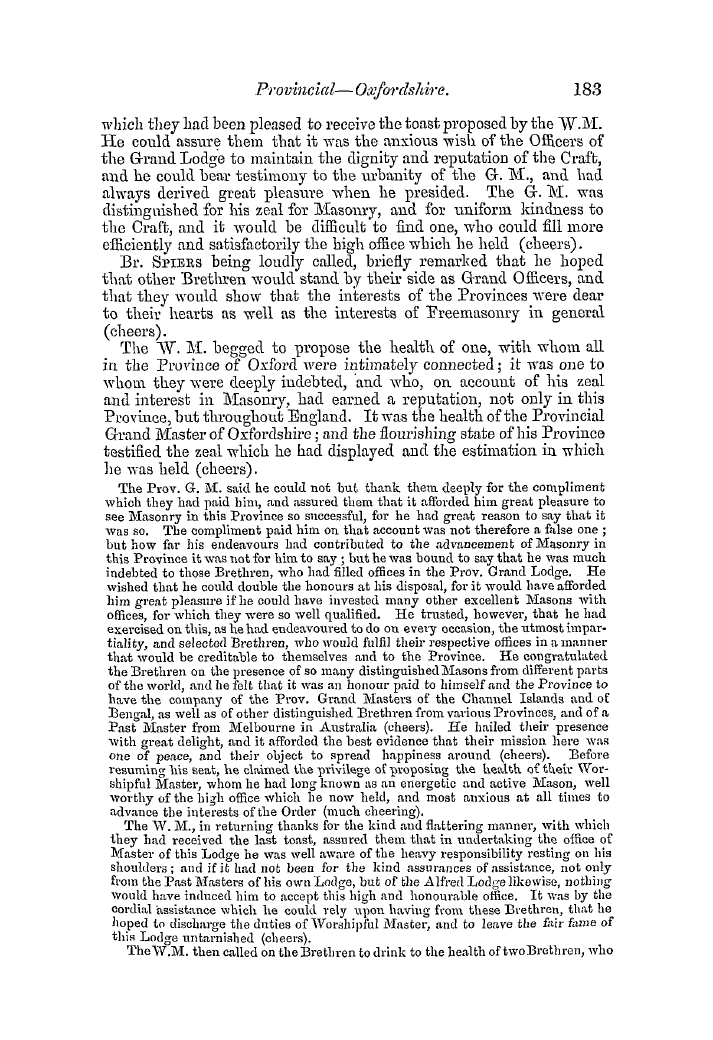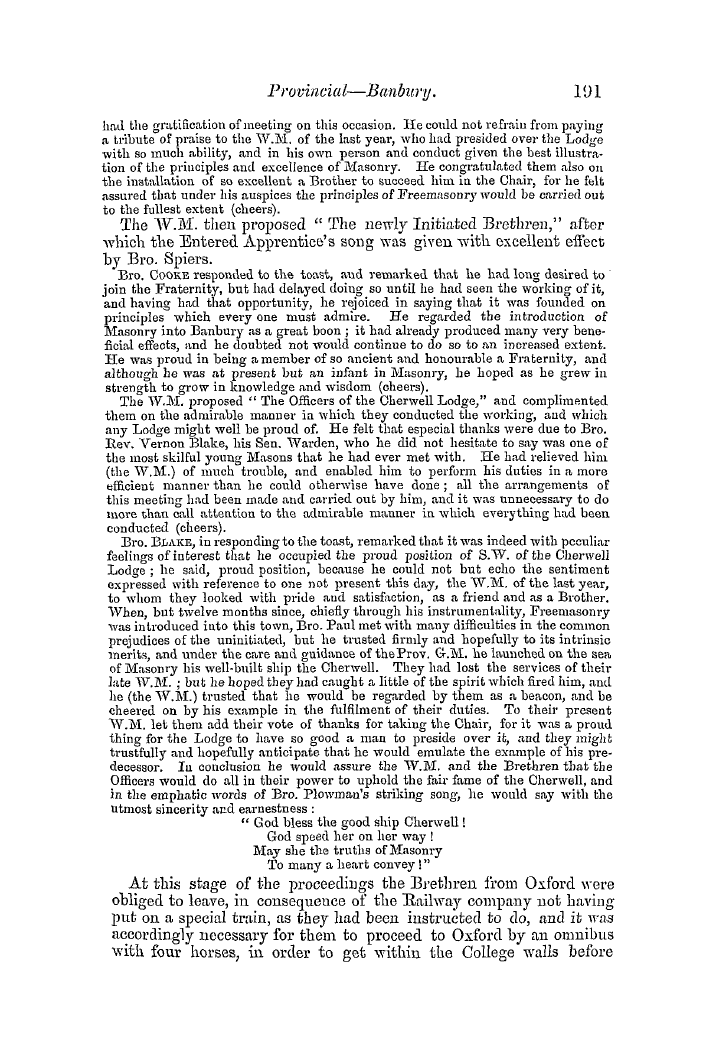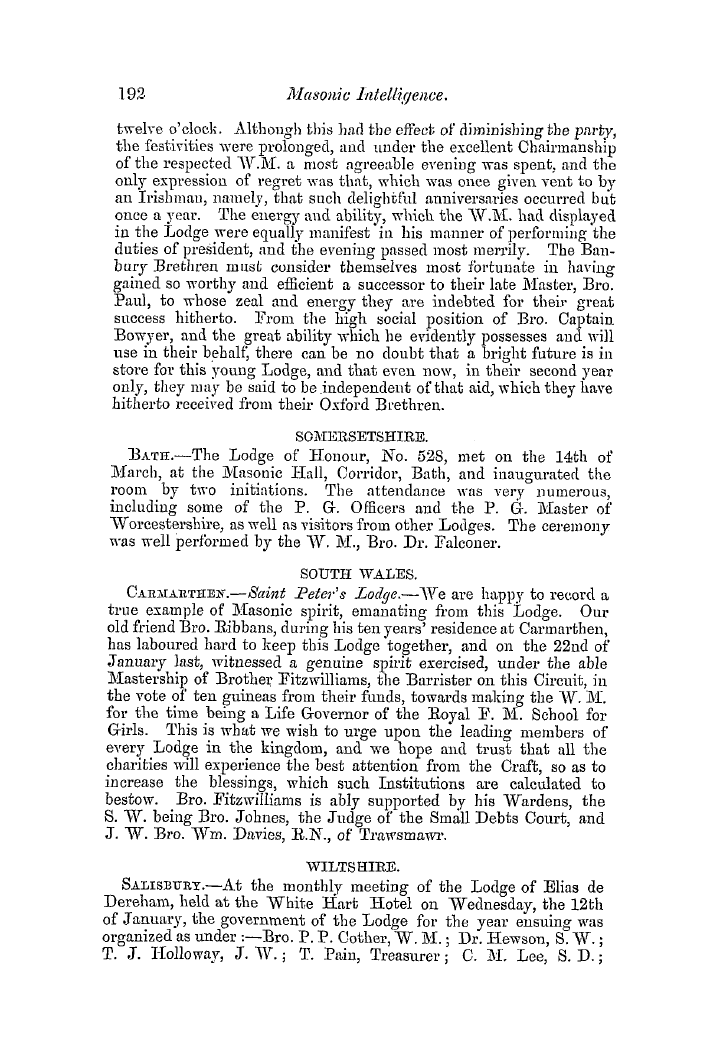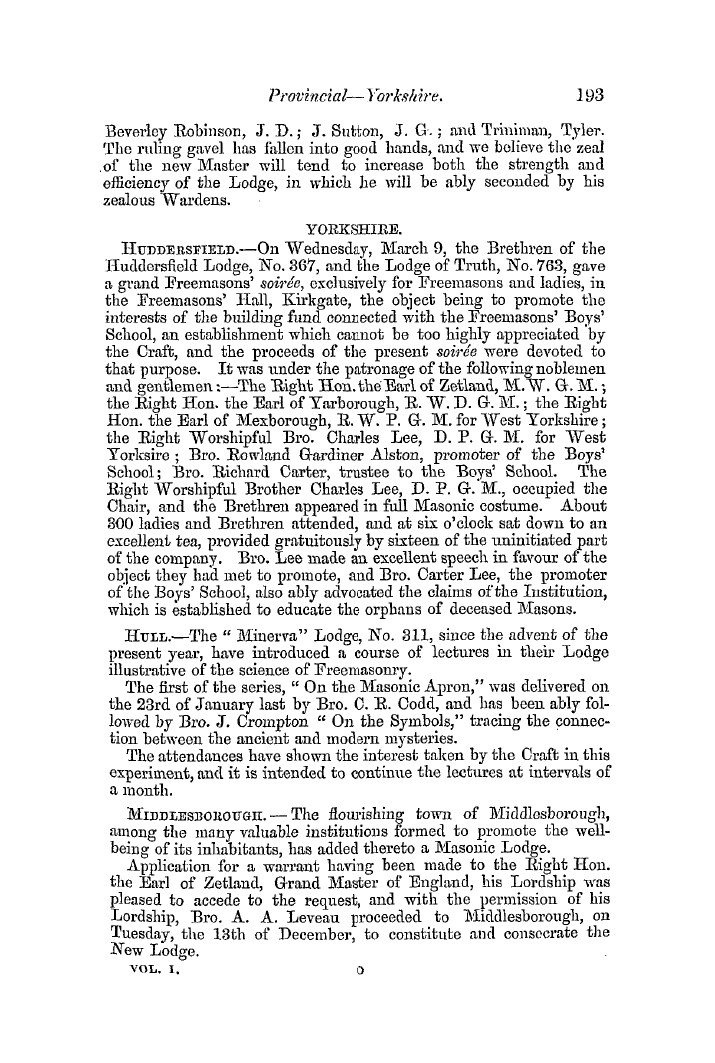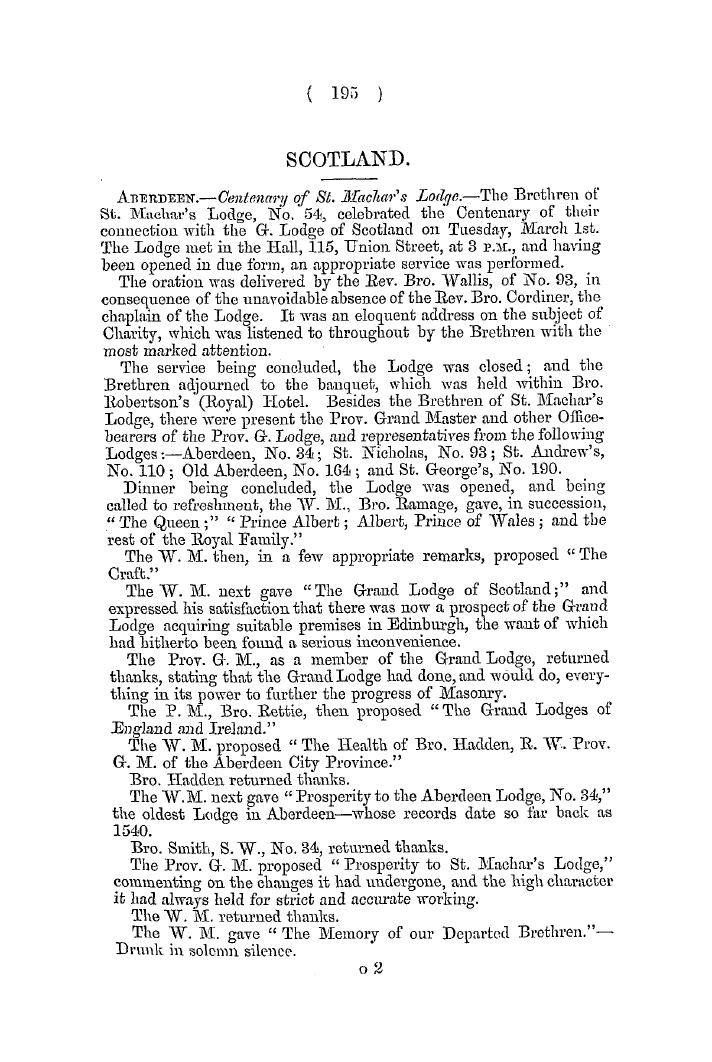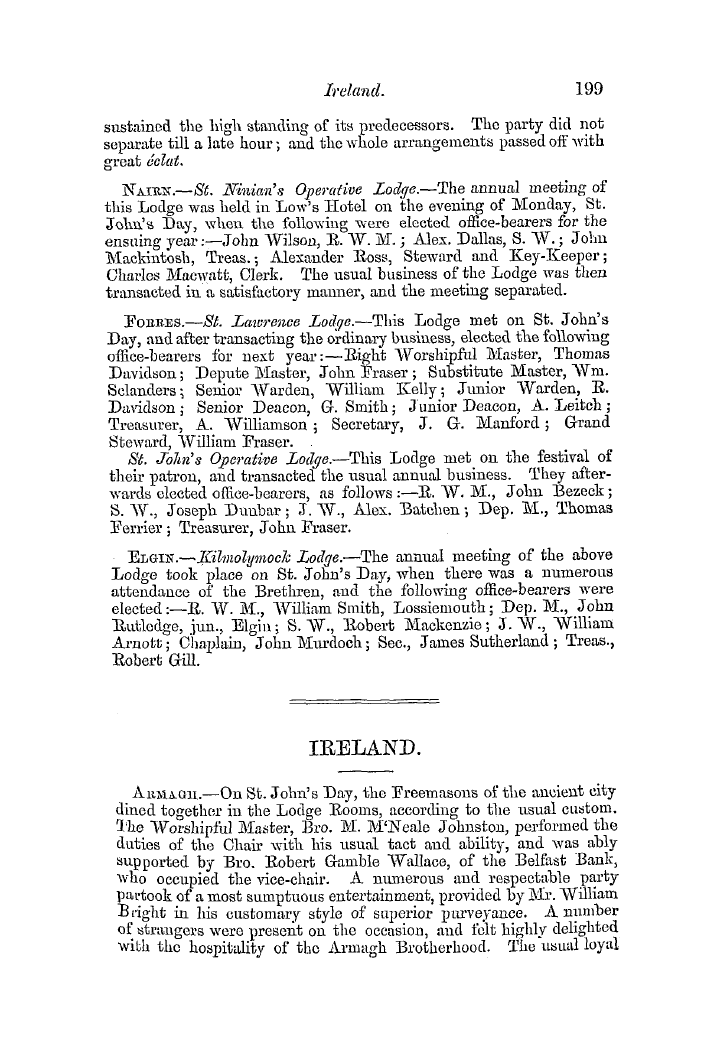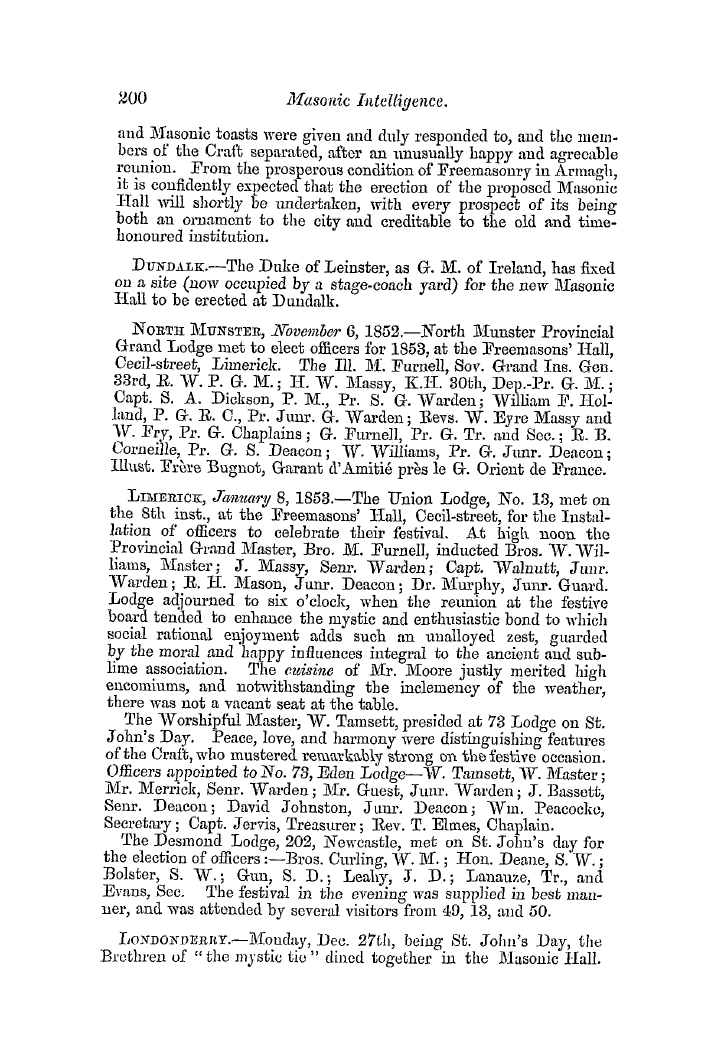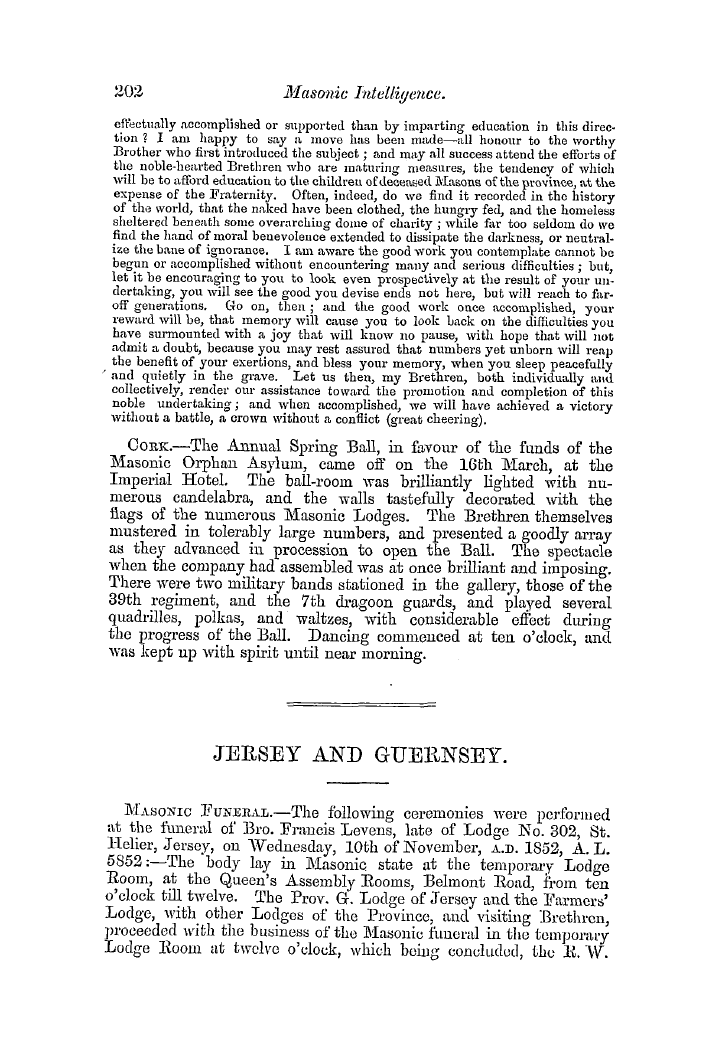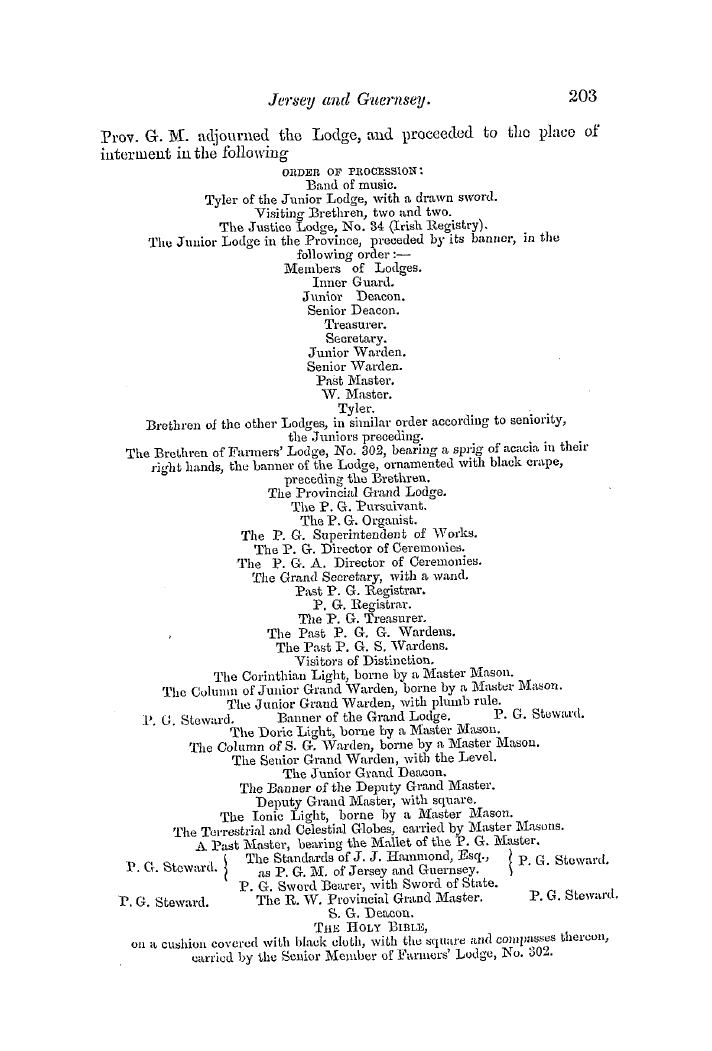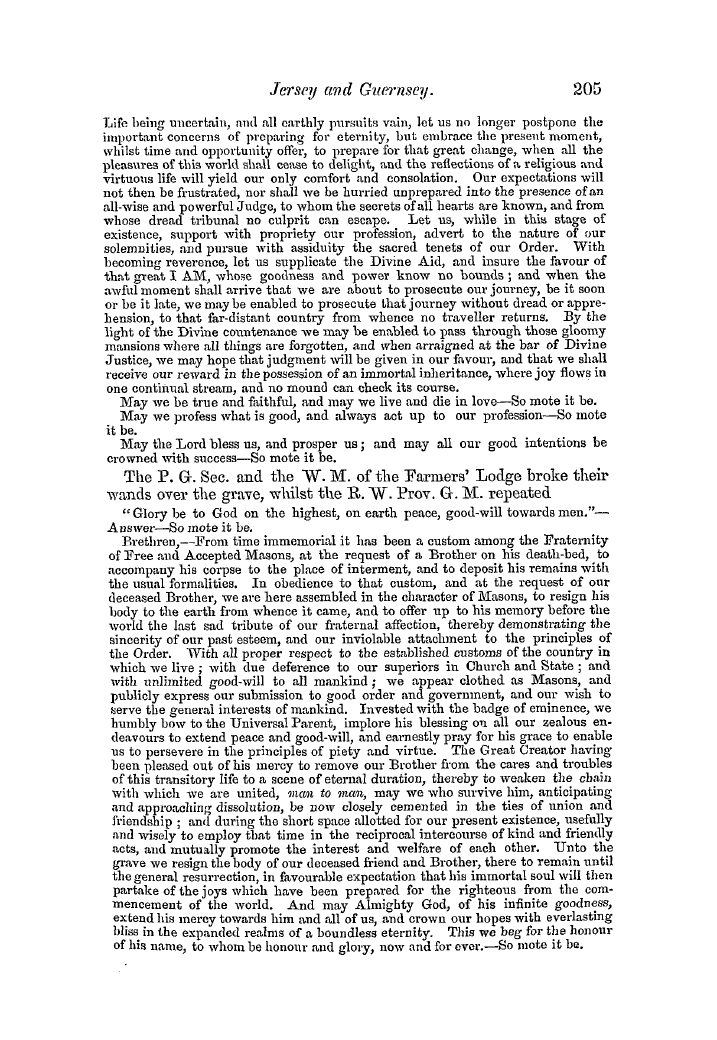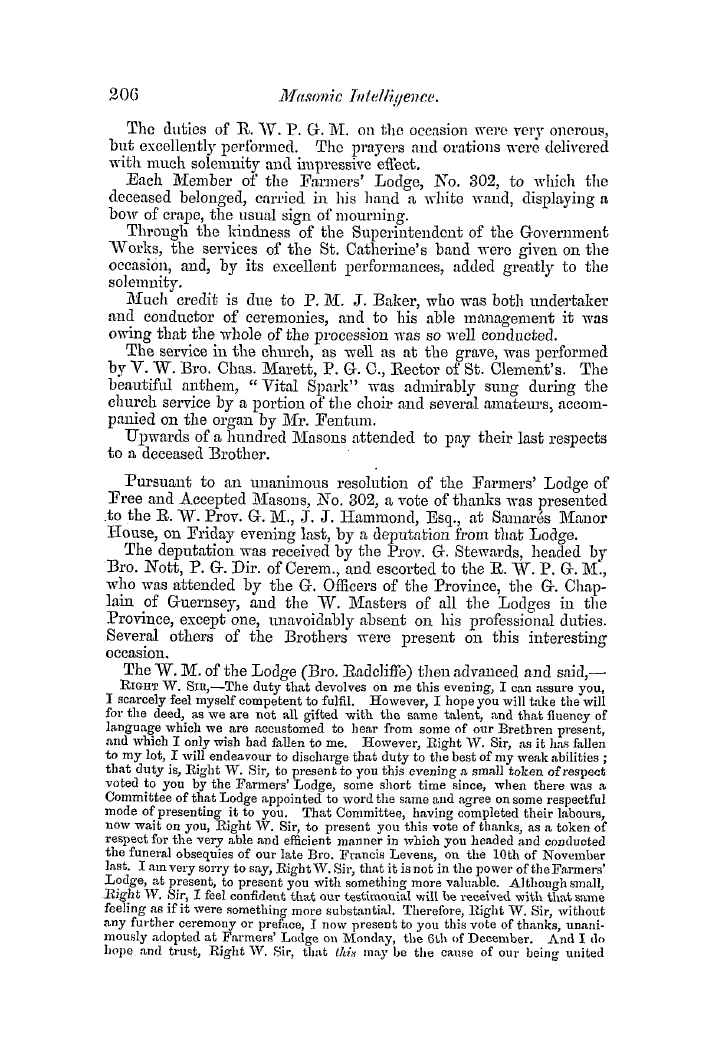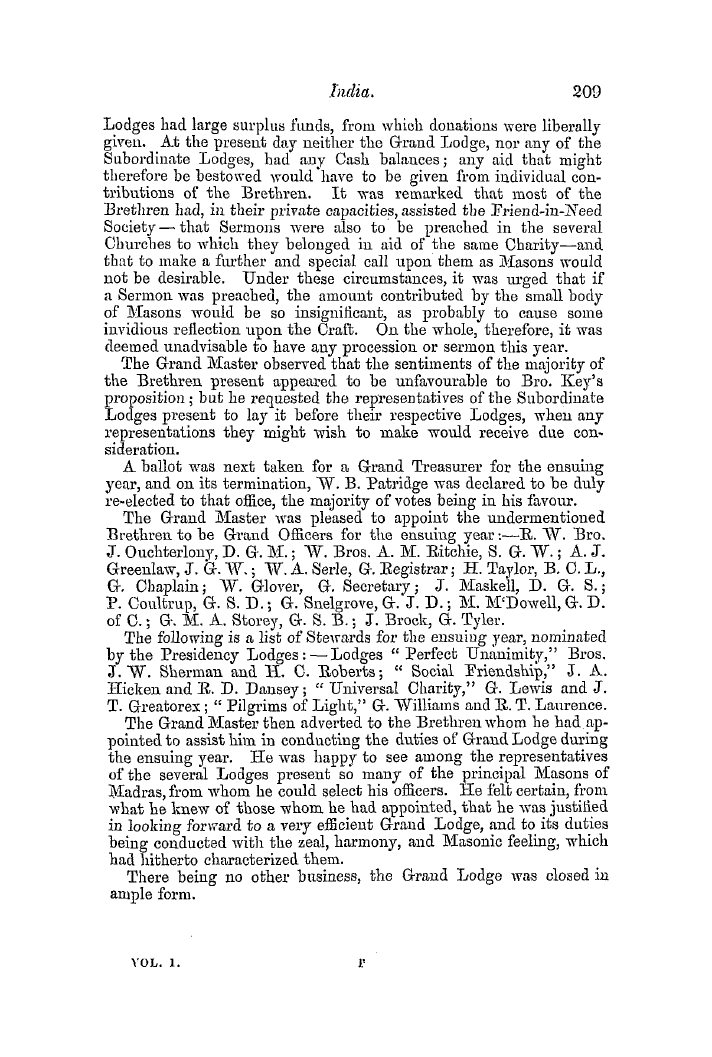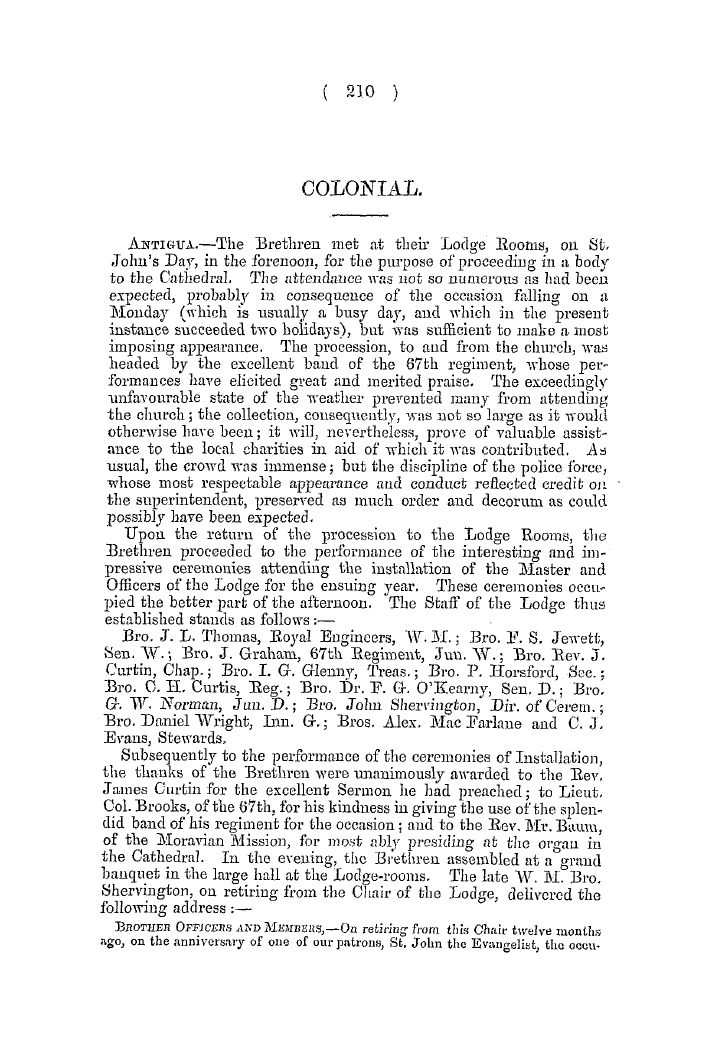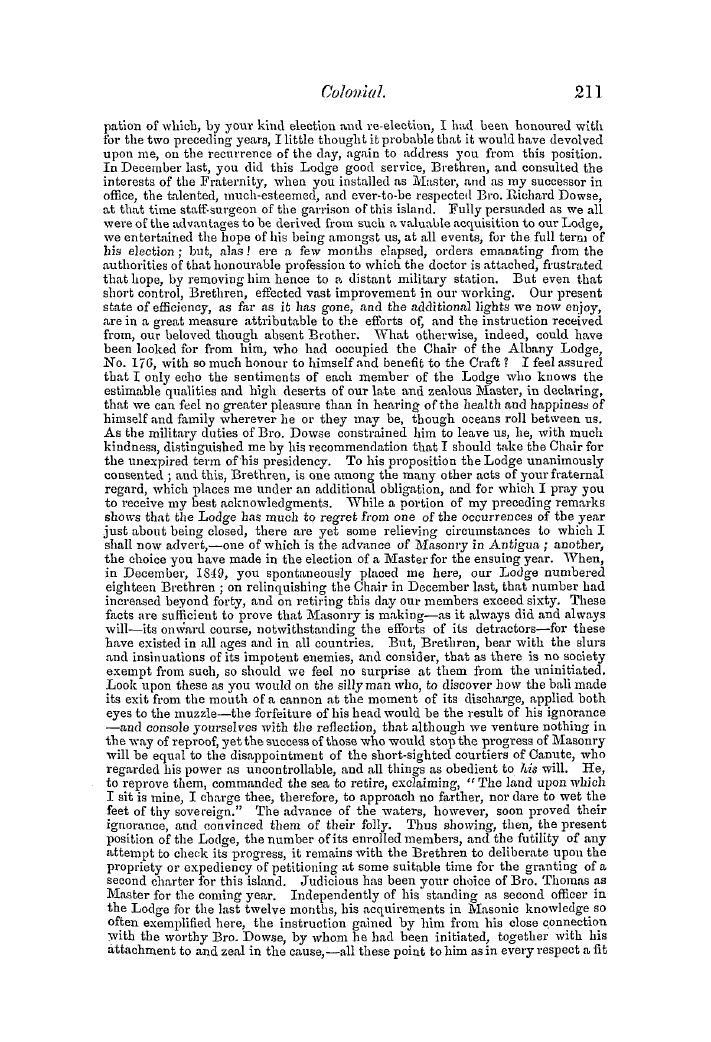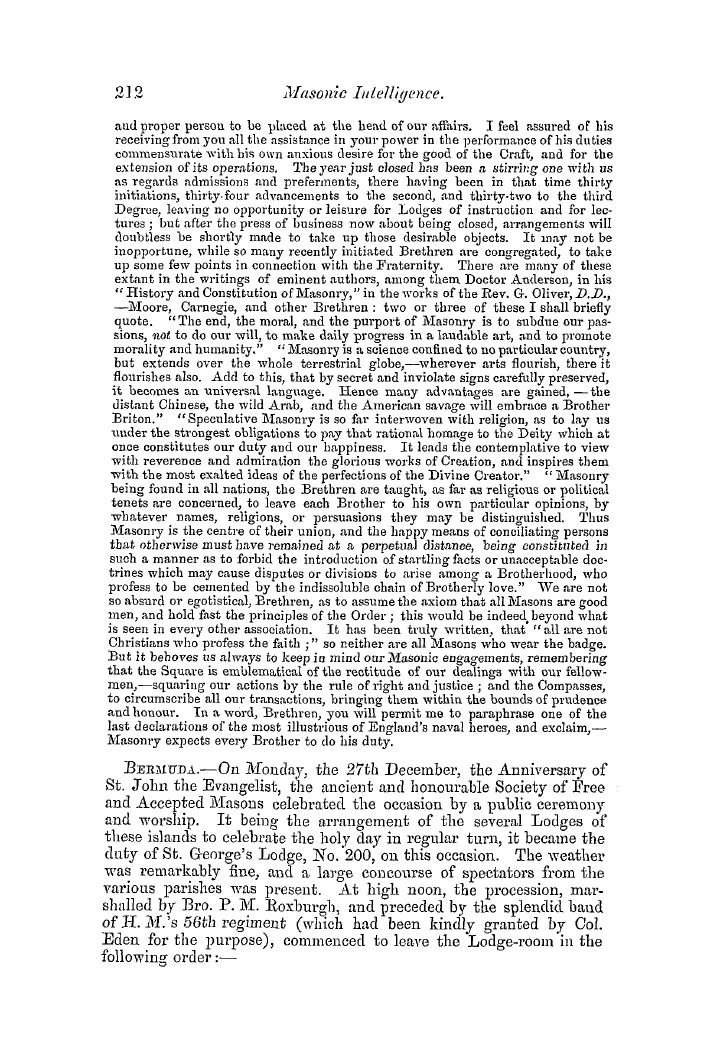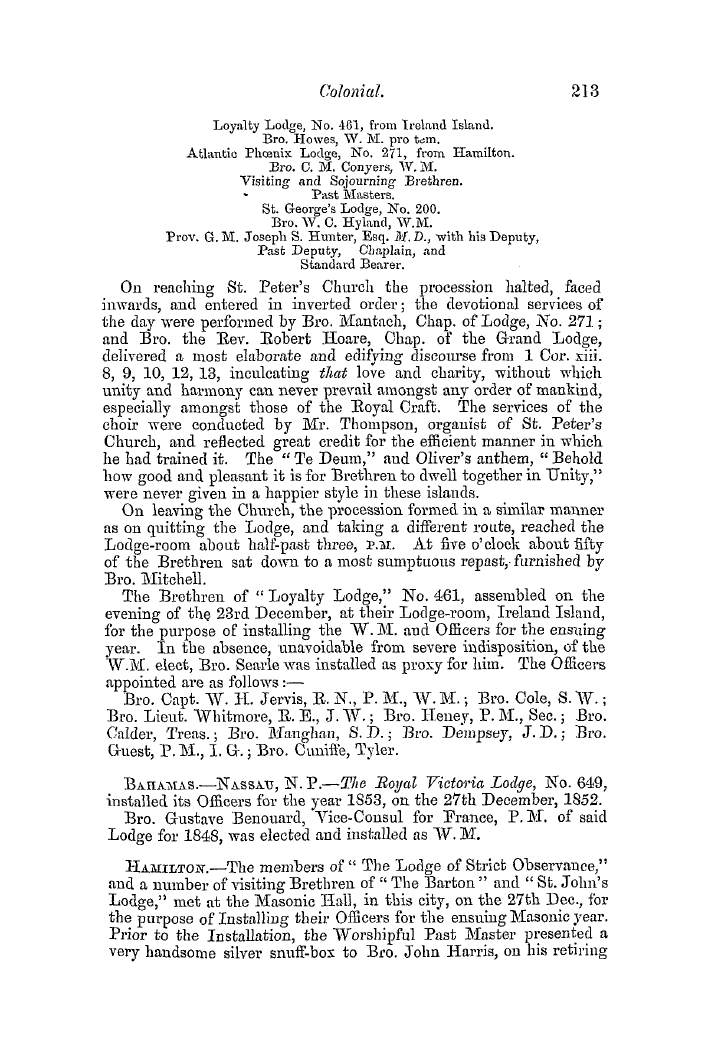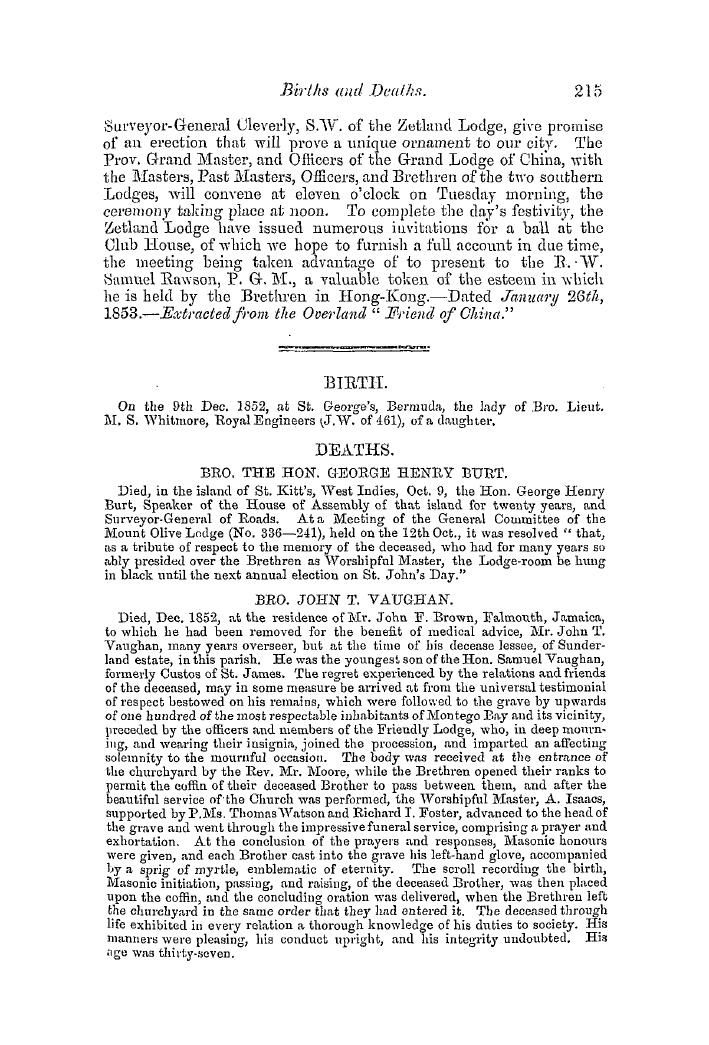-
Articles/Ads
Article THE UNIVERSALITY OF SUPERSTITION. ← Page 20 of 20
Note: This text has been automatically extracted via Optical Character Recognition (OCR) software.
The Universality Of Superstition.
that of the licentious form of religion , lies in the spirit from which they emanate . Those of the ascetic arise from the spirit of fear ; those of the heathen , perhaps , equally from the spirit of love and the spirit of fear . " In illustration of the latter is the disposition to provide for the comfort and prosperity of the dead in then' unseen life . The Norwegians lay the warrior ' s
horse , armour , ancl weapons beside him . The Hindoos burn the widow . The Malabar Indians release caged birds on the newly-made grave , to sanction the flight of the soul ; and other instances might be cited to the same effect , not excluding some xvhich have given birth to customs observed among our ignorant countrymen upon clnisteningsbirthsand marriages .
, , The faith in the prophetic nature of dreams , fostered by the astrologers and almanac-mongers of later clays , has been justly considered as a delusive and dangerous manifestation of superstition . All that can be alloAved , as to the much disputed nature
of dreaming , is that the intellectual faculties may be in an exalted state of activity during sleep . Be the cause of dreams whatever it may , or the impressions which they leave on the mind ever so powerful , they never ought to create anxiety and solicitude , nor be converted into presages and predictions at variance xvith the dictates of cool reason ancl sober judgment .
The ancients believed them to be a medium of seeking instruction from the gods ; hence sleeping-chambers xvere attached to their temples , as at Epidaurus and Oropos . Among the Greeks the god iEsculapius xvas thought to be the sender of dreams , and the tablets in his temple at Cos attested the beneficial results xvhich had ensued from dreams sent bhim to the sick .
y The process of receiving these dreams xvas called incubation , and is mentioned by Pomponius Mela as existing in the interior of Africa , where the savages laid themselx'es down on the graves of their ancestors , to induce oracular dreams . The practice xvas in use also among the Egyptians .
The limits of the present paper prevent further detail of the various branches of universal superstitious belief . Enough , however , has been adduced to place the subject fairly open , and suggest fields for further investigation . As to the importance of the topic , the fact that such men as Tacitus , Melanethon , Richelieu , Mazarin , ancl Dryden , were all superstitious , is answer sufficient ; and as to its extent , it may be truly saicl , that in this boundless tract , strewn with all the blossoms of all philosophy , the human observer may wander for ever .
Note: This text has been automatically extracted via Optical Character Recognition (OCR) software.
The Universality Of Superstition.
that of the licentious form of religion , lies in the spirit from which they emanate . Those of the ascetic arise from the spirit of fear ; those of the heathen , perhaps , equally from the spirit of love and the spirit of fear . " In illustration of the latter is the disposition to provide for the comfort and prosperity of the dead in then' unseen life . The Norwegians lay the warrior ' s
horse , armour , ancl weapons beside him . The Hindoos burn the widow . The Malabar Indians release caged birds on the newly-made grave , to sanction the flight of the soul ; and other instances might be cited to the same effect , not excluding some xvhich have given birth to customs observed among our ignorant countrymen upon clnisteningsbirthsand marriages .
, , The faith in the prophetic nature of dreams , fostered by the astrologers and almanac-mongers of later clays , has been justly considered as a delusive and dangerous manifestation of superstition . All that can be alloAved , as to the much disputed nature
of dreaming , is that the intellectual faculties may be in an exalted state of activity during sleep . Be the cause of dreams whatever it may , or the impressions which they leave on the mind ever so powerful , they never ought to create anxiety and solicitude , nor be converted into presages and predictions at variance xvith the dictates of cool reason ancl sober judgment .
The ancients believed them to be a medium of seeking instruction from the gods ; hence sleeping-chambers xvere attached to their temples , as at Epidaurus and Oropos . Among the Greeks the god iEsculapius xvas thought to be the sender of dreams , and the tablets in his temple at Cos attested the beneficial results xvhich had ensued from dreams sent bhim to the sick .
y The process of receiving these dreams xvas called incubation , and is mentioned by Pomponius Mela as existing in the interior of Africa , where the savages laid themselx'es down on the graves of their ancestors , to induce oracular dreams . The practice xvas in use also among the Egyptians .
The limits of the present paper prevent further detail of the various branches of universal superstitious belief . Enough , however , has been adduced to place the subject fairly open , and suggest fields for further investigation . As to the importance of the topic , the fact that such men as Tacitus , Melanethon , Richelieu , Mazarin , ancl Dryden , were all superstitious , is answer sufficient ; and as to its extent , it may be truly saicl , that in this boundless tract , strewn with all the blossoms of all philosophy , the human observer may wander for ever .
































































































































































































